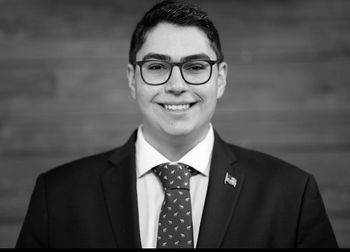Democratic reps who voted against anti-socialism resolution represent these universities
On Feb. 2, the U.S. House of Representatives voted on a resolution denouncing the horrors of socialism (H. Con. Res. 9). Eighty-six Democratic representatives voted against the resolution.
The resolution emphasizes that socialism has historically led to “famine” and “mass murders,” citing the millions killed during the Bolshevik Revolution and under regimes such as that of Pol Pot in Cambodia.
On Feb. 2, the U.S. House of Representatives voted on a resolution denouncing the horrors of socialism (H. Con. Res. 9). Eighty-six Democratic representatives voted against the resolution.
Universities in districts of those who voted against the bill included the likes of the Massachusetts Institute of Technology (Ayanna Pressley - D), Yale University, (Rosa DeLauro - D), Princeton University (Bonnie Coleman - D), Rice University (Lizzie Fletcher - D), and Duke University (Valerie Foushee - D).
[RELATED: University of Florida names study room after Karl Marx]
“[S]ocialist ideology necessitates a concentration of power that has time and time again collapsed into Communist regimes, totalitarian rule, and brutal dictatorships,” begins the resolution.
The resolution emphasizes that socialism has historically led to “famine” and “mass murders,” citing the millions killed during the Bolshevik Revolution and under regimes such as that of Pol Pot in Cambodia.
The resolution concludes, “Resolved by the House of Representatives (the Senate concurring), That Congress denounces socialism in all its forms, and opposes the implementation of socialist policies in the United States of America.”
When asked for her thoughts on the situation by Campus Reform, Congresswoman Maria Elvira Salazar (R-FL) replied, “It’s baffling to me as to why there were so many Members who opposed the resolution, given what it calls out: the undeniable oppression and cruelty of socialism. Now, they are on record as to where they stand on the issue, and they will have to defend their vote to their constituents.”
Elaborating on the connection between higher education and the Democratic “Nay” votes, Representative Salazar went on to say, “It is undeniable that the ideals of socialism are being taught as a viable economic and political model in some institutions around America. For many sympathetic college professors, socialism is just a theory in a book. For many Cuban-Americans, socialism took our property and forced us from our home country.”
”At the end of the day, it is truly evil that naïve college professors want to convince their students that they are better off less free. We must all stand up to this damaging and un-American narrative,” she concluded.
Representative Salazar’s observations accord with the trend, covered by Campus Reform, of universities promoting socialist ideas and thinkers on campuses across the country.
At the University of Central Florida (UCF) in 2021, for example, a professor used a socialist webpage to teach students how to code.
That same year, Campus Reform interviewed students at Georgetown University in Washington, D.C., to get their thoughts on socialism. One interviewee suggested that socialism is a way to solve the history of “racial hierarchy,” another argued that private property rights are “really not” a right possessed by the people.
[RELATED: EXCLUSIVE: Web design class goes lefty with ‘The Social(ism) Hour’]
Late last year, Campus Reform reported on an event at Case Western Reserve University in Ohio titled “Why We Are Marxists.” The event was held by the group Students for Socialist Revolution.
SSR’s mission statement states that its purpose is “[t]o spread the ideas of revolutionary socialism and dialectic materialism [and] [t]o organize political discussion on the ideas of socialism.”
Campus Reform reached out to relevant parties for comment and will update this article accordingly.
Editor’s Note: After publication comments were received from Congresswoman Maria Elvira Salazar (R-FL). Those comments have now been added to this article.

